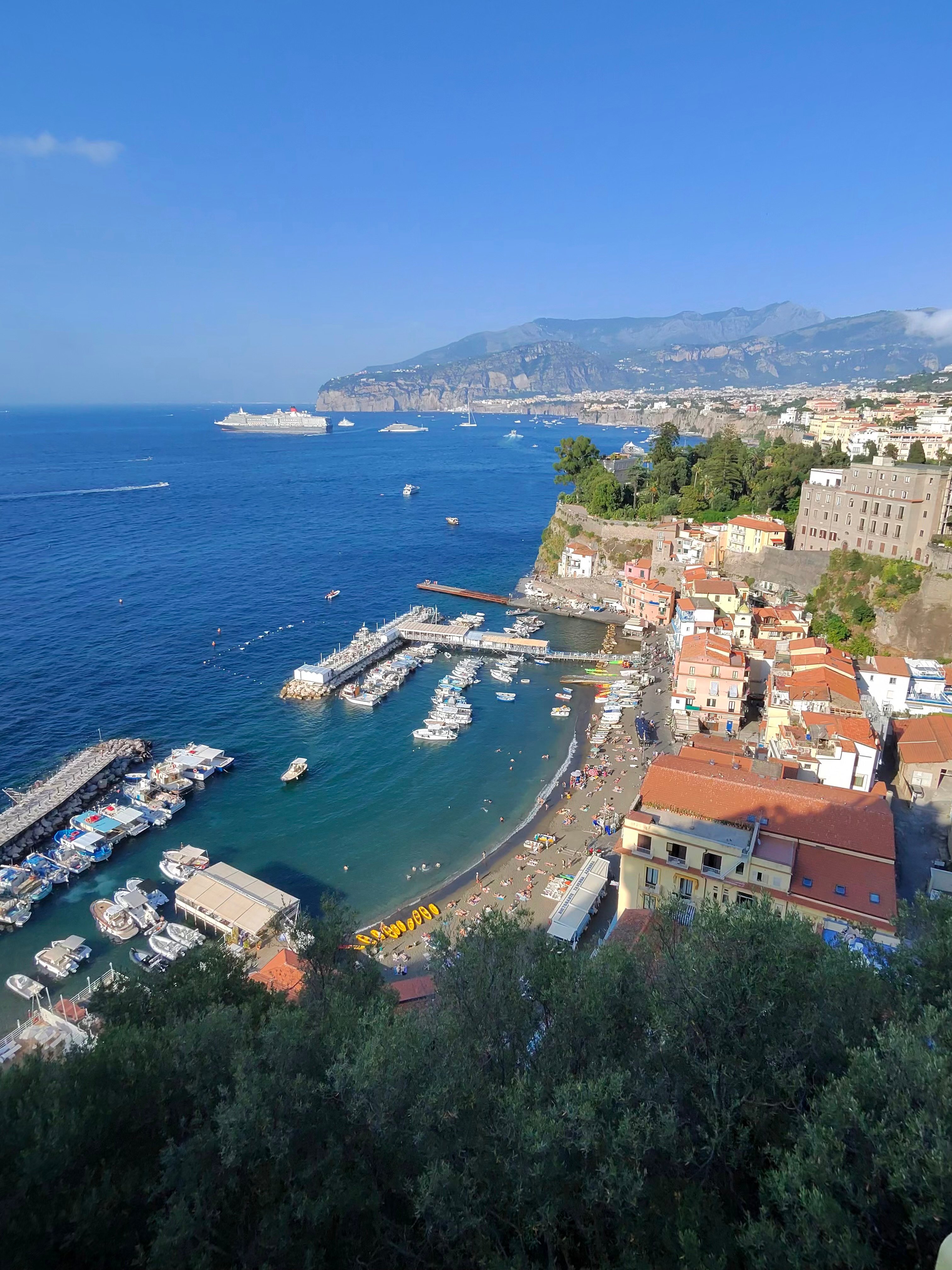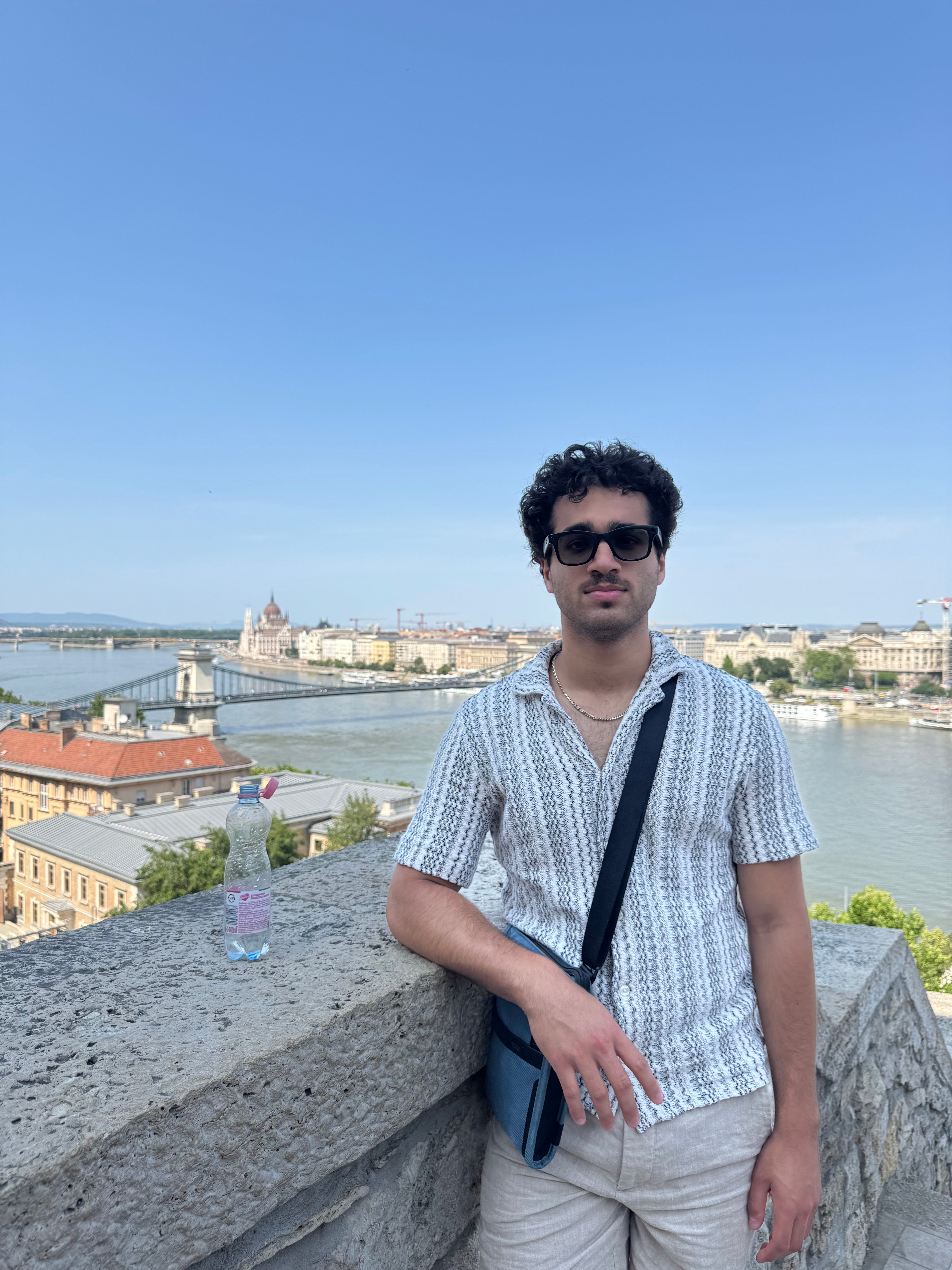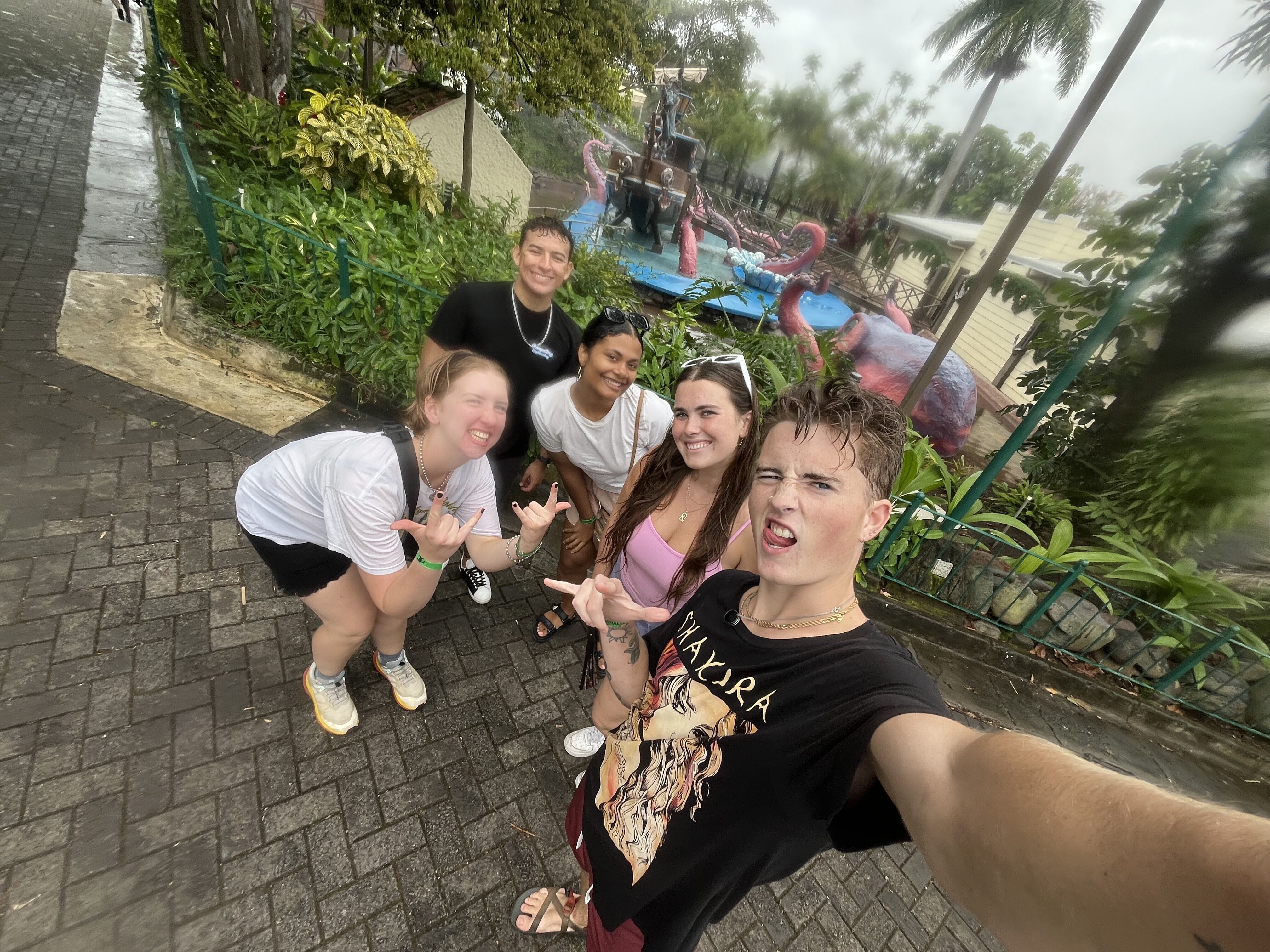My name is Iman Dashti, and I’m a rising senior at the University of Michigan studying Industrial and Operations Engineering. This summer, I had the opportunity to intern with a local nonprofit marine conservation organization based at the Bay of Ieranto, a protected coastal area in southern Italy. The internship was connected to a micro-credential I pursued, designed to provide experience in sustainability and environmental fieldwork.
While my academic background lies in engineering and systems optimization, the experience challenged me to apply those skills in a very different and dynamic environment. I studied and worked in the coastal town of Massa Lubrense, located near Sorrento. My days began early, often before sunrise, with a long commute that included a hike to reach the conservation site. The physical rigor of the work surprised me at first. Each day involved tasks like underwater monitoring, beach cleanups, and environmental education programs for visitors. This experience helped provide a framework that connected the fieldwork to broader goals in sustainability, data analysis, and public outreach. It also encouraged me to reflect regularly on the impact of my work and how it aligned with my academic and career goals.
 One of the most valuable lessons I gained during this internship was the importance of maintaining a willingness to say “yes” to unfamiliar and uncomfortable situations. Much of the work pushed me out of my comfort zone—whether it was adjusting to the early schedule, navigating language barriers, or engaging in tasks I had no prior experience with. Embracing these challenges not only helped me contribute more meaningfully to the team but also built my confidence and resilience. The discomfort was temporary; the growth was lasting.
One of the most valuable lessons I gained during this internship was the importance of maintaining a willingness to say “yes” to unfamiliar and uncomfortable situations. Much of the work pushed me out of my comfort zone—whether it was adjusting to the early schedule, navigating language barriers, or engaging in tasks I had no prior experience with. Embracing these challenges not only helped me contribute more meaningfully to the team but also built my confidence and resilience. The discomfort was temporary; the growth was lasting.

Advice to Future Students
If I were to offer advice to future interns, it would be to remain open to new experiences, even if they seem tangential to your major or career path. The most rewarding parts of this internship came from moments that were unpredictable and required adaptability. Saying yes to difficult or unfamiliar tasks often led to the most impactful learning opportunities. Engineering education tends to emphasize precision and planning, but this experience reminded me that flexibility, collaboration, and initiative are equally essential skills—especially in multidisciplinary, real-world contexts.
Reflecting on the Experience
Looking back, one of my greatest successes was overcoming the initial hesitation I felt about whether I truly belonged in a conservation-focused internship. Despite the physical and logistical demands, I found that my engineering mindset added value in unexpected ways, from improving the efficiency of daily operations to analyzing patterns in data collection. At the same time, my biggest challenge was learning to slow down and listen more—to the environment, to the community, and to the rhythm of the work. That shift in perspective was humbling but essential.
Overall, this internship and the accompanying micro-credential enriched my academic experience by bridging the gap between theory and practice. It reminded me that impactful work often lies at the intersection of technical knowledge and human experience. I’m grateful for the opportunity to engage with a global issue like marine conservation in such a direct way, and I’ll carry the skills, lessons, and mindset from this summer into my future as both a student and an engineer.
Learn more about studying engineering in Sorrento here!



.jpg)

 One of the most valuable lessons I gained during this internship was the importance of maintaining a willingness to say “yes” to unfamiliar and uncomfortable situations. Much of the work pushed me out of my comfort zone—whether it was adjusting to the early schedule, navigating language barriers, or engaging in tasks I had no prior experience with. Embracing these challenges not only helped me contribute more meaningfully to the team but also built my confidence and resilience. The discomfort was temporary; the growth was lasting.
One of the most valuable lessons I gained during this internship was the importance of maintaining a willingness to say “yes” to unfamiliar and uncomfortable situations. Much of the work pushed me out of my comfort zone—whether it was adjusting to the early schedule, navigating language barriers, or engaging in tasks I had no prior experience with. Embracing these challenges not only helped me contribute more meaningfully to the team but also built my confidence and resilience. The discomfort was temporary; the growth was lasting.